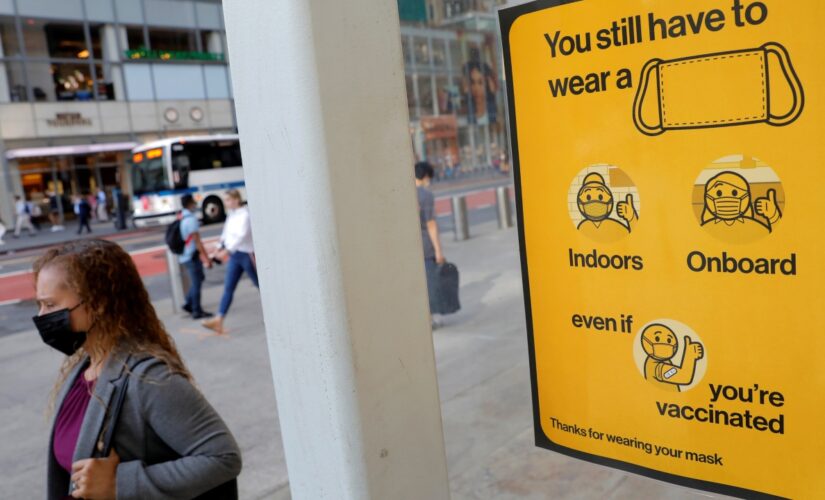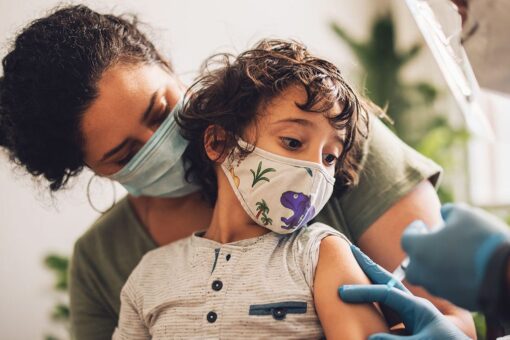As the nation rebounds from a surge of the delta variant, questions swirl over future and new coronavirus variants and the effectiveness of vaccines against them.
As long as the virus that caused the COVID-19 pandemic continues to infect people, new variants will continue to emerge.
FRONT-LINE HEALTH CARE WORKER SHORTAGE DUE TO COVID-19 VACCINE MANDATES, BURNOUT
However, that does not mean that variants will occur with the same frequency or become more hazardous.
Last week, the U.K. Health Security Agency said that a delta descendant called AY.4.2 was “expanding” and “increasing in frequency” in England.
In a statement to Business Insider, the U.S. Centers for Disease Control (CDC) said Wednesday that the variant is still very rare, at “well below 0.05%” of all sequenced viruses, with less than 10 reported in the agency’s database thus far.
A woman wearing a mask passes by a coronavirus disease mobile testing van in Washington Square Park in New York City, U.S., July 22, 2021.
(REUTERS/Brendan McDermid/File Photo)
“At this time … there is no evidence that the sub-lineage A.Y.4.2 impacts the effectiveness of our current vaccines or therapeutics,” the CDC said.
Andrew Read, a virus expert at Pennsylvania State University, told The Associated Press that a virus needs to adapt to its host to spread more widely and the CDC says that the delta variant is doubly as contagious as earlier versions of the virus.
However, while the virus could become more infectious, there is no evolutionary reason for it to become more deadly.
“We’ve seen a stage of rapid evolution for the virus. It’s been harvesting the low-hanging fruit, but there’s not an infinite number of things it can do,” Dr. Adam Lauring, a virus and infectious disease expert at the University of Michigan, told the AP.
FLORIDA’S NEW SURGEON GENERAL: DATA DOES NOT SUPPORT MASK MANDATES IN SCHOOL
Those who are severely ill are also less likely to socialize and spread the virus to others.
With more than half of the world still unvaccinated, the virus is likely to continue to infect, replicate and potentially mutate – creating new variants.
Nearly 190 million people, or about 57% of the total population, are fully vaccinated in the U.S.
Scientists are monitoring whether new variants could better evade the protection afforded to people through vaccination and infection, making the immune responses less effective.
If that happens, experts may promote periodically updated vaccine formulas, as in the case of annual flu shots.
Pfizer, Inc. CEO Albert Bourla said in June that, should the need arise, his company could develop a new COVID-19 vaccine within 100 days.
Nature reported on Wednesday that the makers of the Pfizer/BioNTech, Moderna and AstraZeneca vaccines have been “running dress rehearsals” and practicing on known variants in clinical studies.
CLICK HERE TO GET THE FOX NEWS APP
Moderna, the publication said, is recruiting hundreds of participants to test new RNA vaccines against the beta and delta variants, a combination of beta and the original strain and a beta-delta multivalent vaccine.
The Associated Press contributed to this report




